#wang anshi
Explore tagged Tumblr posts
Text
been really enjoying these two books on Wang Anshi:
Pease, Jonathan. His Stubbornship: Prime Minister Wang Anshi (1021--1086), Reformer and Poet. Brill, 2021. https://doi.org/10.1163/9789004469259
Pease, Jonathan. “From the Wellsweep to the Shallow Skiff: life and poetry of Wang Anshi (1021--1086).” 1986. University of Washington, PhD dissertation. https://digital.lib.washington.edu/researchworks/items/479314df-affc-4320-8b29-36abac8c5328/full
his writing style as a biographer is energetic and clear, and he's astoundingly good at poetry analysis. his translations are idiosyncratic but fun -- without having read more of Wang Anshi in the original, i can't say more than that either way
4 notes
·
View notes
Text
Happy Gushiwensday Shabbes! We have another Wang Anshi tonight, "Miscellaneous Poem #5."
The morning sun shines in--I slept wrapped around my book and dreamed about Bell Mountain. I'm all old feelings. I face old age with composure, though I've been dragged through the mud, and I think today I can do it again. I'll wash in the cold stream.
Notes and original text under the cut.
杂咏五首
朝阳映屋拥书眠,梦想锺山一慨然。 投老安能长忍垢,会当归此濯寒泉。
This one we translated because we were unsatisfied with Hinton's translation that we looked at a while ago. I'm a big fan of this poem. Very contemplative and melancholy, a little esoteric. Here are some notes!
wrapped around my book --- or with books gathered around.
Bell Mountain --- Laurence tells me that this is the mountain where Wang Anshi's favorite monastery was; he was friends with the abbot and visited many times. We think that this poem was written after he retired (post the death of his son) to "Halfway House," which was pretty much in the shadow of this mountain, which makes it curious to say he dreamed about it. I wondered whether he wasn't dreaming of a version of it from the past, when his life was simpler.
all old feelings --- 一慨然 is a really fun phrase. 一 is here used as "entirely" or "thoroughly" and 慨然 is like, in a heartfelt sigh kind of way. I'm still not totally sure whether this describes the mountain or the narrator, but I lean toward the latter. I've also used "old" feelings rather than "deep" feelings because I felt like he was dreaming about the past.
I face old age --- 投 is a fantaaaastic character. It can mean to throw something, to surrender oneself, to cast a vote/glance/shadow (!!!), to throw oneself into something like a river, or even to seek refuge. Applying this to old age has such a richness.
dragged through the mud --- Literally "a long time enduring dirt/disgrace." Obviously the poet has used a word for disgrace that primarily evokes physical grime (at least from the binomes it's in) because the next line is about washing.
I think today... again --- Grammatically puzzling! 会当归此 might be literally translated as "I'm able to manage returning to this" or "I'm able to withstand it and return to this." The referent of 此 "this/that" is unclear---I've resolved it via line-to-line word parallelism. ie, assuming "return to this" is paralleled with "can be calm" in the previous line. According to Laurence's researches Wang Anshi is known for being quite meticulous with his word parallelism, and this poem has a few other potentially interesting parallels:
In the first couplet, maybe 映 shine and 锺 bell are being paralleled: one visual image and one sonic image. (Laurence's interpretation) I'm not entirely sure whether most bells had a shiny finish, but if so it could also evoke the shine of metal!
Also in the first couplet, 拥 could either read as gathered or embraced, and either way it has a nice resonance with 一 perfused or in totality.
Very obviously, in the second couplet, 垢 dirt contrasted with 泉 stream or spring. The dirt or disgrace is from his political career, so it also evokes the simplicity of life in retirement and a remove from the "material world."
In the second couplet, potentially something interesting is going on with 长 always, forever, or constantly and 濯 wash, a clear material action that happens once and changes your state.
4 notes
·
View notes
Text
Wang slashed taxes but raised revenues by making collection fairer.
"Why the West Rules – For Now: The patterns of history and what they reveal about the future" - Ian Morris
0 notes
Text
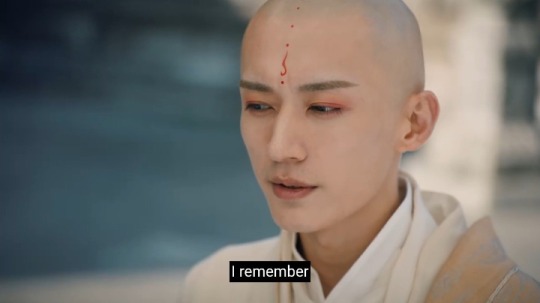
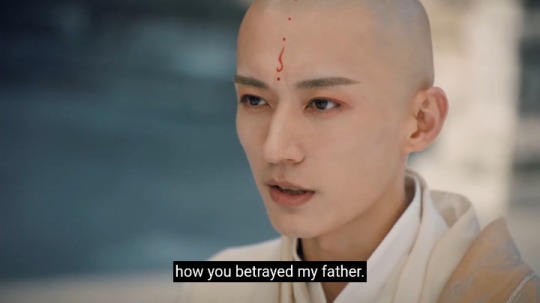

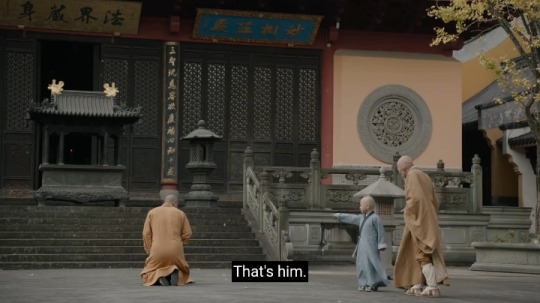
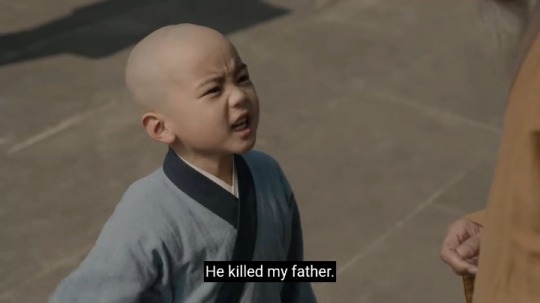
Does anyone know who is this man named Wang Rensun? It is not said in DY that someone had betrayed Ye Dingzhi, let alone killed him because Ye Dingzhi ended his own life himself and seemingly without any outside persuasion.

4 notes
·
View notes
Text
Asian dramas and relationship dynamics (Pt.1)
There are my favorite relationship dynamics as a list. Opposites attract + power couple
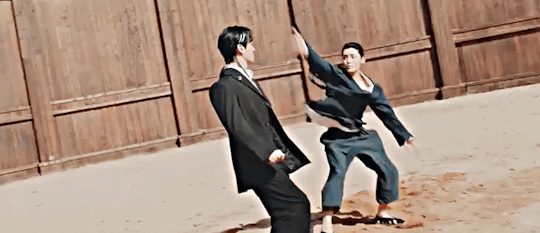
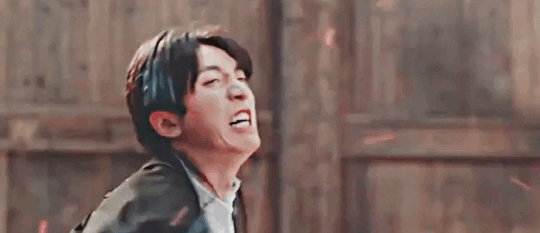

Drama: I Am Nobody / 异人之下 Characters: Zhuge Qing & Wang Ye Screentime: Minor I like it when characters are different in a way they could complement one another, but at the same time they are similar in terms of what is important for people to stay stuck together. Zhuge Qing is public, easy-going and wants to be friends with Wang Ye. Wang Ye is mysterious, reflexive and doesn't want to be bothered by other people. But no one can beat extrovert if he decided to be friends with you =) Plus, they are united by their superpowers: they are both powerful sorcerers and their sorcery is very similar in its nature. So they can compete and learn from each other and, if necessary, kick enemy's ass together. ̶A̶n̶d̶ ̶t̶h̶e̶i̶r̶ ̶d̶y̶n̶a̶m̶i̶c̶s̶ ̶h̶a̶s̶ ̶g̶o̶t̶ ̶t̶h̶i̶c̶k̶ ̶B̶L̶ ̶v̶i̶b̶e̶s.̶ By the end of season 1 they are OK and together.
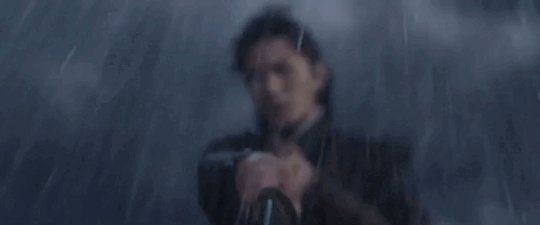
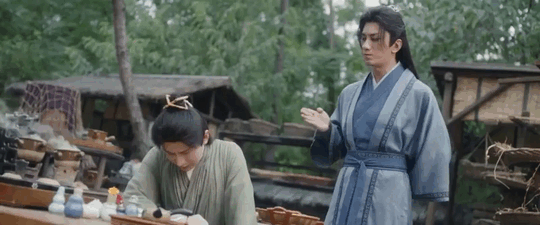
Drama: Mysterious Lotus Casebook / 莲花楼 Characters: Di Feisheng & Li Lianhua Screentime: Secondary Di Feisheng is a leader of a demonic sect, a former slave and a very straightforward man. Li Lianhua is a former leader of a righteous sect and an extremely sly man with not-so-bad background. But both of them are the best martial artists in Jianghu and went through a lot together. One wants everyone to leave him alone, another wants to be with him together forever. Both of them don't give a damn about everything that happens in the world but they care for each other. B̶L̶-̶v̶i̶b̶e̶s̶ ̶a̶r̶e̶ ̶a̶t̶t̶a̶c̶h̶e̶d̶.̶ The ending of the drama is obscure but I'd like to think they both are alive and happy together.
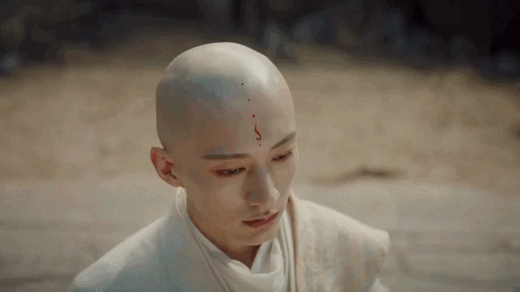
Drama: The Blood of Youth / 少年歌行 Characters: Xiao Se & Ye Anshi Screentime: Secondary A leader of a demonic sect who has an ultimate martial knowledge and a former best righteous martial artist, who is suffering from decease and can't fight anymore. What can unite them? The answer is: the similar mindset. They both had a great power and lost it, they both are shouldering great responsibilities which don't make them happy. Despite the fact that they should be on the opposite sides in Jianghu world, they are still good friends. M̶a̶y̶b̶e̶ ̶B̶L̶-̶f̶r̶i̶e̶n̶d̶s̶,̶ ̶a̶l̶t̶h̶o̶u̶g̶h̶ ̶X̶i̶a̶o̶ ̶S̶e̶ ̶h̶a̶s̶ ̶a̶ ̶g̶i̶r̶l̶f̶r̶i̶e̶n̶d̶.̶ There is a small extra ep at the end of drama, when they meet each other again in a very romantic way. Just search for it.

Drama: The Legends / 招摇 Characters: Lu Shiqi & Qin Qianxian Screentime: Minor She is from a demonic sect. He is from a righteous one. She is immune to the impact of spiritual power. He is the one of the most powerful people in terms of spiritual power. She is dumb, straightforward and pure-hearted. He is blissed yet sensible and burdened with difficult moral choices. They could be an ideal Yin-Yang couple. But they have BE, because it's "The Legends", everyone should die in here Т_Т.
Pride and Prejudice + power couple

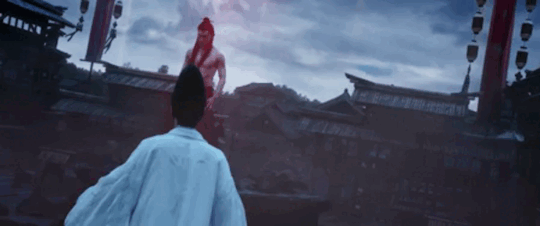

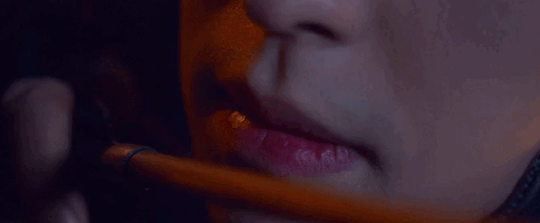

Drama: The Yin-Yang Master: Dream of Eternity / 晴雅集 Characters: Bo Ya & Qing Ming Screentime: Main This dynanics is similar with the previous one, but here we are focused on how they ended up together. Bo Ya has prejudice against demons-yao and believes all of them should be executed. He meets half-demon-sorcerer Qing Ming who helps him to overcome his prejudice. Finally, they become friends (or̶ ̶m̶a̶y̶b̶e̶ ̶n̶o̶t̶ ̶o̶n̶l̶y̶ ̶f̶r̶i̶e̶n̶d̶s̶) and together they win over the evil forces. At the end they are separated but there is a hope they meet again.
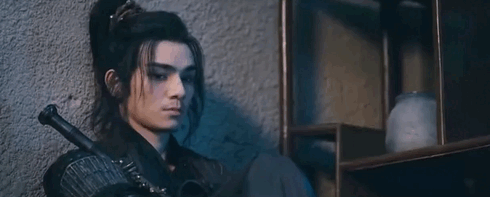
Drama: Wuliang / 无量 Characters: Po Xiao & Feng Ren Screentime: Main People of different social status both seek to get a magical sutra. During a road trip they exchange opinions on the sutra and how to use it and change each other's mind. In the end it turns out that they together saved the world and can be finally together. As friends, of course.
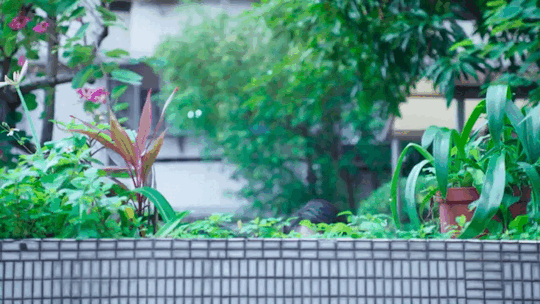
Drama: Oh No! Here Comes Trouble / 不良執念清除師 Characters: Pu Yiyong & Cao Guangyan Screentime: Main Pu Yiyong looks like lowlife, studies very bad and hates Cao Guangyan, who is self-confident, smart and thinks low of Pu Yiyong. But a mysterious case with ghosts forces them to interact and they find out, that together they are a perfect team. Honestly speaking, this little series couldn't develop this topic as good as I hoped, but it's a really interesting story, so you can watch it for the ghost detective plot and get this type of relationship in addition. It's a Taiwanese drama, so BL-jokes and dalliance with a viewer were huge, but it didn`t help much. Still a nice dynamics and a good drama. Us vs the World
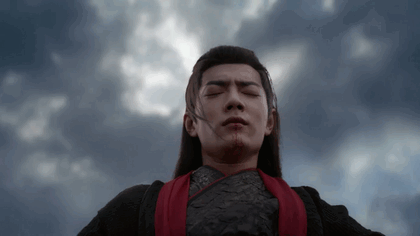



Drama: The Untamed / 陈情令 Characters: Wei Wuxian & Lan Wangji Screentime: Main I don`t like the novel, but I like drama exactly because here I can see this dynamics. In the past life of Wei Wuxiang Lan Wangji was not strong enough to go against the whole world to protect his friend (well, in the novel they are lovers, but it kills the main idea of this dynamics by turning it into "I do it all just to get into your bed", which is meh), and his friend died. Suddenly, 16 years later, he gets a chance to choose once more: to be a part of society and watch once more his friend dying or to be with him against everyone this time. The moment he chooses to be with Wei Wuxian against the whole world I felt cathartic pleasure. The drama ends up on a little bit obscure but positive note.
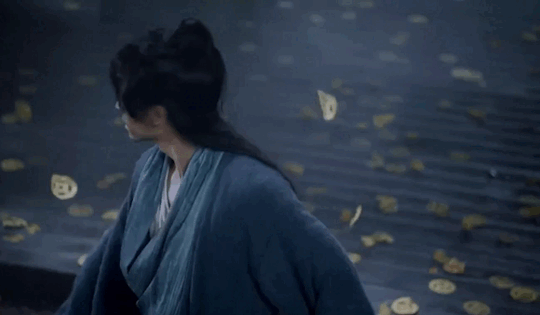

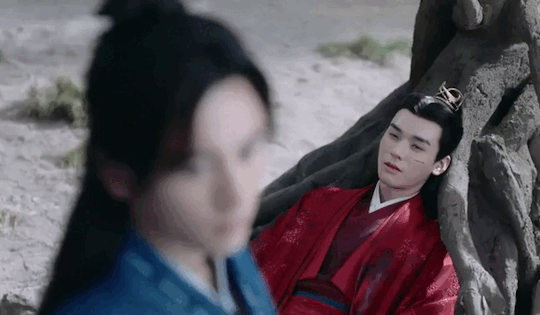
Drama: Word of Honor / 山河令 Characters: Zhou Zishu & Wen Kexing Screentime: Main A former king's assassin who is at the brink of death and just wants to live the time left in silence and a birdy master of the most skillful criminals find each other, find out that they are brothers-in-teachings and decide to fight against the world together just to live in silence and enjoy each other's company. When one thinks it's his last second of life, the other comes to help him even if they both can't beat the greater number of enemies and will die for sure. Catharsis! The drama has a small extra ep where they are together and all right.

Drama: The Legends / 招摇 Characters: Li Chenlan & Lu Zhaoyao Screentime: Main Them, again! The first half of the drama they have enemies-to-lovers dynamics, but then, when they find out the truth about Zhao Yao's death and about feelings for each other, they turn into Bonny and Clyde and go annihilate the righteous guys who are in fact not-so-righteous. And it makes me feel cathartic, too. A very catharsis-causing dynamics, indeed! It's little obscure, but they will be fine at the end of the drama.

Drama: Dong Lan Xue / 东栏雪 Characters: Shen Yan & Chu Ningyuan Screentime: Main Two bad guys work together to get power in the palace. And get involved in romantic relationship during their power gaining. Nice story with an open ending.
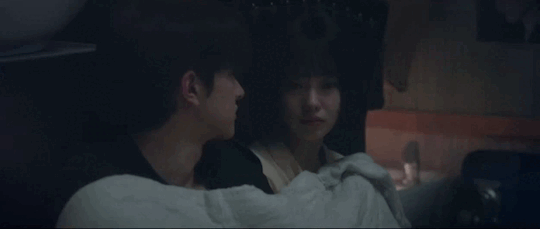
Drama: Derailment /脱轨 Characters: Qi Lian & Jiang Xiaoyuan Screentime: Main It's a little story inside a big one about transmigrators that you can read in another of my posts. It lasts something like 1,5 eps of the drama but is a nice story itself. A lonely bellicose boy from a rich family runs away from home where no one cares for him and lives on the street. A lonely girl from an extremely poor family and being bullied by classmates tries to survive in this world. They meet each other and understand that it's easier to fight their fate together. Nice story, it's a pity that this one is too short and not a main plot of the drama.
Descent

Drama: The Spirealm / 致命游戏 Characters: Ruan Lanzhu & Ling Jiushi Screentime: Main
It's a really rare but interesting dynamics (and it is a huge spoiler to this drama itself, so beware): the god-like creature (a monster of the 12th door in the novel "Kaleidoscope of death" and a VR-virus in its adaptation, "The Spirealm") has to keep company to a mere person. During their journey, a god-like creature finds out that said mere person is not really mere, and unexpectantly develops feelings for him, which cause his "descent" and allow him to be a little bit less ethereal and a little bit more human. I like the drama more than the novel, but the lore and the story are great in both of them. The novel has HE and the drama ending is controversial: you can consider it as BE or as delayed HE, but it's heart-wrenching, powerful and logical. Also you can see: Asian dramas and relationship dynamics (Pt. 2) Asian dramas and my favorite types of characters Asian dramas and Love tropes Enemies to Rivals/Lovers recipe
#cdrama#tropes#movie tropes#SDabouttropes#the legends#period drama#costume drama#xianxia#twdrama#bl drama#wuxia#modern drama#i am nobody#derailment drama#Dong Lan Snow#word of honor#The Untamed#oh no! here comes trouble#Wuliang#The Yin-Yang Master#the blood of youth#mysterious lotus casebook#the spirealm
273 notes
·
View notes
Text
live reaction to the ending of Dashing Youth because I'm a weak bitch who caved and got the last few eps unlocked
spoilers under the cut
episodes 36-40
WE FINALLY GOT SOME ZIBAI AND LIU YUE CONTENT AFTER 37392929 YEARS AAAAA
Mo Qixuan the designated babysitter so real (his interactions with Ye Anshi are so cute 🥺🥺🥺)
Liu Yue!!!!!! taking in Yin Luoxia as his disciple!!!!
(also shit who are the three who infiltrated and got their martial arts ruined???? WHERE'S MO XIAOHEI)
and????? that line from LMS TO BLDJ ABOUT MEETING AGAIN???? THAT'S SUCH A GREAT QUOTE FOR THE REINCARNATION AU EDITS
ALSO NOT THEM GOING OFF TO NANJUE???? LMS IS GOING TO DIE ISNT HE 😭😭😭
SLAYYYY XIE XUAN SHOW HIM WHO'S BOSS
why does Li Hanyi's actress keep making her so stone faced 🥲 it looks so unnatural
!!!!!! Beique trio reunion dhfndkdn Yuji following Qixuan's lead in bowing to Yue Yao,,,even though he didn't acknowledge that she was still his Young Lady
But Qixuan saying that they decided to follow YDZ because he saved Yuji's life!!!
(NOOO THEY CUT OUT THE CHAPTER 322 PART)
Wang Yixing is such a mood
OH OKAY look if they didn't mention anything about my Beili ba gongzi dying that clearly means they survived 😤
#dashing youth#I'm going feral#but Liu Yue remains as pretty as ever 🥹🥹#少年白马醉春风#reminder that im a chronic side character enjoyer so...
3 notes
·
View notes
Note
There’s a Chinese poem that brainrotted East Asia for 1000 years?!

万緑一紅 Banryokuikkou or 紅一点 Kouitten or 万緑叢中紅一点 Banryokusou Chuu Kouitten from Ode to a Pomegranate Flower (咏石榴花) by Wang Anshi
Basically "A red flower by itself stands out the most against a sea of green", it's become a metaphor in East Asia to refer to "A woman is best exemplified when she is among a group of men". It's basically why a lot of groups in a lot of shonen, besides inherent sexism, will only have one woman among their ranks.
Serena ended up being called a Kouitten, and was likely the reason she was the only female Lancer, along with Mieru likely being Zappa Go's character and Masumi being a character requested to be created to help sell Raging Masters (a set in Japan that had D/D, Gem-Knight, Constellar and X-Saber), and Mr. Kamishiro, the head writer, seemed to have an incredibly hard headed resistance against using characters requested as part of corporate mandate or provided by other writers.
I tend to chalk up VRAINS' failures with female cast members up to systematic factors piling on top of each other and contradicting each other, as well as availability issues with Aoi's actress (A similar problem that screwed over Aki in 5D's, as her actress was basically throwing herself at TV programs that adults would watch (not porn, just soap operas and prime time TV) over anime and Tokusatsu).
ARC-V's misogyny seems to be much more personally driven in terms of just professional incompetence and extremely petty behavior.
1 note
·
View note
Text
Side note, what makes Chinese history also a hilarious mix of fuckery is that at any given time, there's the mix of taoism and confucianism and I think my favorite quote from wikipedia reading of the song dynasty, which is "no one actually know what the fuck confucianism actually is."

Wang Anshi is right. Like I'm first generation chinese and literally, I've never truly understood exactly what the fuck confucianism actually is, other than a tool for my parents to tell me about curfew during high school.





Everything he does to make the world safe for her is pushing them further away from viability - I mean, there wasn't much to start with (she only sees him as family) but he can't even woo her and try to change it because she'd never be one of many.
But also - this drama is so rare (not unique but rare) in showing that the whole marriage for alliance and part of a harem sucks for the women but it sucks for the man too, unless it's a particular kind of man. It makes nobody happy. I remember him in s1, being "gifted" those spy women and having to take them to bed to alleviate suspicions and breaking down enough to tell XY how he loathes their smell and by implication how he loathes taking them to bed. And yet he gets more and more women for power and not many people enjoy sleeping with women they don't at least fancy sexually (and it's clear CX doesn't have a massive libido or w/e and in another life would be happy just being with XY and that's about it) and it's like unpleasant unpleasant work.
197 notes
·
View notes
Quote
爆竹聲中一歲除 春風送暖入屠蘇 千門萬戶曈曈日 總把新桃換舊符 Amidst the sounds of fireworks, one year slips away. Spring winds send warmth and enter the Tusu wine Upon a thousand doors and ten-thousand houses, the bright and glistening sun. All grab a hold of the new peach-wood to replace the old talisman.
First Day of the New Year (元日) by Wang Anshi (王安石). Song Dynasty. translated by Kuiwon (歸源).
Wang Anshi, courtesy name, Jiefu (介甫) was a poet, Chinese economist, statesman and chancellor of the Song Dynasty. A controversial but notable political figure, he was known for attempting major socioeconomic reforms which were known as the New Policies. His poems reflect social, economic and political themes and he was ranked number seven of the Eight Great Prose Masters of the Tang and Song (唐宋八大家).
First Day of the New Year commemorates the Lunar New Year, but also echoes Wang’s socioeconomic reforms which promise a new start in life. Created in the Han Dynasty, Tusu wine is a liquor infused with Chinese herbs which was historically believed to ward off plague, epidemic and bad spirits when consumed. Peach wood talismans are images of the door gods placed on both sides of a house’s double gates to prevent ghosts from entering.
Follow sinθ magazine for more daily posts about Sino arts and culture.
#first day of the new year#chinese new year#wang anshi#song dynasty poetry#classical chinese poetry#week 123#nc
233 notes
·
View notes
Text
Various Chants (III) - Wang Anshi
The morning sun is shining into my room -- I woke up in a bed full of books. My dreams were of Bell Mountain, my whole self sighing.
Suddenly old, I can calmly endure my remaining years of disgrace: Treat it as a return home, to wash in the cold spring.
杂咏六首·其三
王安石
朝阳映屋拥书眠, 梦想锺山一慨然。 投老安能长忍垢, 会当归此濯寒泉。
Translation notes:
"suddenly old" - 投 has some fascinating definitions including "to throw oneself into (a river, a well etc to commit suicide) / to go to; to seek refuge; to place oneself into the hands of"
"I can calmly endure" - not totally satisfied with my choice here; maybe I'm overcorrecting for how Hinton renders the pivotal 能 in this line as a question. there's such a mix of strongly positive and ominous words in this line. which does suggest a question being posed, and answered in the next line
"treat it as" - my reading of 当 as "take it as, count it as"
"a return home" - 归 is famously used in poems about returning to one's hometown, loved ones, etc. But here it also has a strongly Buddhist association of returning to a more pure, innocent state. BIG thing with retired politicians renouncing worldly concerns to live in rural obscurity (highly idealized or not).
Further reading:
full poem series
David Hinton's translation of this poem
manuscript with commentary that the OCR has not been able to handle

4 notes
·
View notes
Text
Tonight we have a new poet for you: please give it up for Wang Anshi!
Yi was Lü was already an old man when he passed through hardship to fortune. If fate hadn't sent the king to meet the fisherman, the ploughman, that hero would have just grown old. King Tang met him King Wu met him by chance. As wind follows the tiger and cloud the dragon, the founding king is found chatting and laughing. A thousand years later has anyone matched him?
Notes and original text under the cut.
浪淘沙令·伊吕两衰翁
伊吕两衰翁,历遍穷通。一为钓叟一耕佣。若使当时身不遇,老了英雄。 汤武偶相逢,风虎云龙。兴王只在谈笑中。直至如今千载后,谁与争功
So, we feel like the historical context is reasonably important for this one. Wang Anshi was a Song-Dynasty political and economic reformist--he had a lot of radical ideas about how the wellbeing of the country relied on the wellbeing of the peasants who were feeding it, and therefore they shouldn't be squeezed for every last drop of blood by their landlords et c. Everyone ignored this until a new emperor ascended and got desperate enough to listen to him, so he was promoted to a high position. I feel there are echoes of that story here.
This poem concerns two parallel stories about the founding of the ultra ancient Shang and Zhou dynasties. Lü Shang (better known as Jiang Ziya) was a fisherman who was appointed as an advisor by King Wen of Zhou, whose son founded the Zhou Dynasty. Yi Yin was an enslaved agricultural worker who got transferred to the capital and became an advisor to King Tang Wang, who founded the Shang Dynasty (later destroyed by King Wen of Zhou, lol).
The fancy thing I've done with the spacing is to highlight the parallelism and clarify that these are two separate stories, the kings did NOT know each other (was unclear to me for the first like hour of translating this).
Anyway, here are some notes.
If fate hadn't sent -- an interesting grammatical construction here. The verb 使 to cause/send/use doesn't actually have a subject (or indeed a direct object; "king" is inferred) so I went with "fate."
would have just grown old -- 老了 another interesting construction: this is just old + the completed action marker. Laurence says it conveys a sense of finality, and also made the fantastic connection to Li He's Song of the Bronze Immortal: "If Heaven cared at all, it too would grow old." I translated this very literally because I have a hard time nailing down the figurative language at play.
met him by chance -- arguably true in Yi Yin's case, but King Wen of Zhou is said to have received a prophecy about meeting Jiang Ziya from his grandfather, and just in case checked it by divination to make sure he got the location right. Woah! Fancy meeting you here completely by chance!!
wind follows.... dragon -- an idiom meaning that rulers who are both mighty and virtuous naturally attract mighty and virtuous subordinates.
the founding king... laughing -- more fascinating grammars here. Two different words in this phrase, 在 and 中, indicate "being in the middle of doing something." There's also the word 只 "just," which maybe implies that chatting and laughing are both necessary and sufficient to founding a country. Laurence pointed out that this also has parallels to how a ton of politics ended up being conducted via teas and garden parties--chatting and laughing is also the substance of running an empire day-to-day!
A thousand years... matched him? -- we were struck by how formulaic this ending is, especially compared to the previous line about chatting to found a dynasty. Laurence guessed it might be by way of praise for the emperor who elevated Wang Anshi, or even bragging in the sense of, "Jiang Ziya, Yi Yin... and me! Wow, we're all founding empires! Our kings are so fortunate to have us!"
6 notes
·
View notes
Text
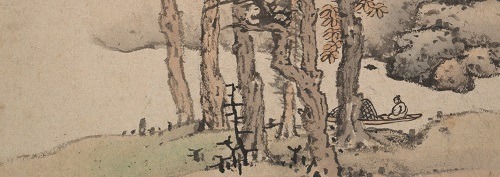
RIBA SUR
Riba sur de la loma oriental, segunda luna, todo reluce inspirándome poemas nuevos: al viento —verde ánade— la onda clara repuja; al sol —jalde oca— el mimbre pénsil titila.
Wang Anshi
di-versión©ochoislas
*
南浦
南浦東崗二月時 物華撩我有新詩 含風鴨綠粼粼起 弄日鵝黃裊裊垂
王安石
#Wang Anshi#literatura china#poesía de Song#primavera#ribera#inspiración#color#di-versiones©ochoislas#王安石
1 note
·
View note
Photo
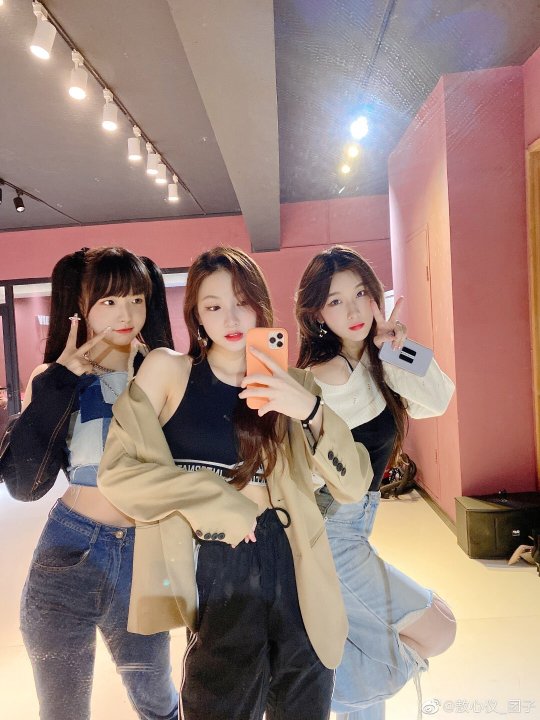



#Xie Anshi#Blair Wang#Ao Xinyi#Wang Yiqiao#cpop#cpop idols#mandopop#Biu Girls#Thats Anshi's group#Chuang 2020#Produce Camp 2020
2 notes
·
View notes
Photo




the story of ming lan || 知否知否应是绿肥红瘦 → sheng minglan
"That girl, she lives like the sun."
#the story of Ming Lan#知否知否应是绿肥红瘦#cdramanet#zhao li ying#赵丽颖#mine#the chinese poem in the gifs appears in the opening sequence of the drama#and is a poem by wang anshi of song dynasty#smth about how if the orchid never leaves the wild valley it grows in#we won't be able to appreciate its elegant and excellent scent#(from what i surmised from analyses)#and much more poetic than how i explained it#applies to minglan so much#minglan grew on me a lot like she was such an enigma in the first 40 episodes#but after she married over to tingye's place you really got to see the real her thrive and blossom#i love her so much she's one of my fav drama characters now#just... the way she conducts herself and views life#and the way she's portrayed in the show
202 notes
·
View notes
Text
Chinese philosophy doesn’t have the letters of salvation: differs from general religion (Essay)
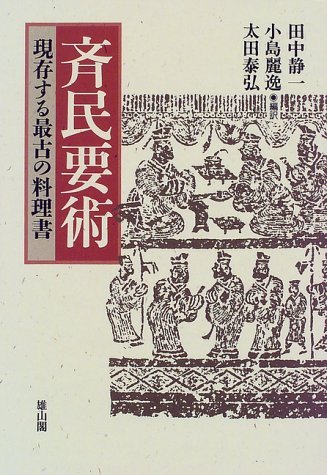
Seimin Yojyutsu (Qimin Yaoshu)
I have recently noticed books such as "Lao Tzu", "Zhuang Zhou”, "I Ching", and "The book:書経" that have been passed down since ancient times in China, That is, the concept of "salvation" in Chinese philosophy is endlessly scarce or absent.
In the case of general religions, the three major religions in the world ... In Christianity, Islam, and Buddhism, the concept of "salvation" is indispensable. No, without this, believers cannot safely enter into a religious life. Without a voice saying, "Please save me who is sinful and tainted," religion cannot be established.
With that in mind, I googled for the keyword "Is there the word salvation in Chinese philosophy?" Then, a hit page was displayed, which was the word "Keisei Saimin" or "Keikoku Saimin". The meaning is "run the world and help the people." It shows the purpose of so-called "economy", or more specifically, "politics". It certainly has the meaning of "salvation," but it has a very different nuance from religious "salvation." There is no assumption of a god and buddha to rescue, even if the politician assumes it.
@@@@@@@@@@@@@@@@@@@@@@@
In the inner part of "Baopuzi" written by Ge Hong in Eastern Jin, China, the word "Making the world folklore" appears and is used almost synonymously with the Making the world people. The era went down a little, and in the Sui dynasty's Wang Tong "Bunchuko" Rei-raku Hen, there was "Economics of the economy, so-called economic people", and "economics" was used as an abbreviation for the people of the economy. I understand. In addition, "economy" appears in later generations such as "Shinsho" Yin Koden (Tang) and "Song History" Wang Anshi Denron (former), but of course the above is a usage that means politics, governance, and administration in general. After the political change of Bojyutsu and Hundred Days' Reform, the new subject "Economic Special Course", which was newly established to appoint talented human resources in the field who are scholarly and scholarly, is also based on this usage. ..
@@@@@@@@@@@@@@@@@@@@@
Wiki (Keisei Saimin)
That was the source of this word. It is surprising that it first appeared in a book called " Hobokushi", which looks like a child of Taoism and Confucian. By the way, traditionally, there are technical books that enrich the people in China. I would like to introduce one of them, a book called "Seimin Yojutsu(The important technics to enrich people)" (wiki). "Qimin Yaoshu" in Chinese.
@@@@@@@@@@@@@@@@@@@@@@
"Qimin Yaoshu" (Traditional Chinese: Qimin Yaoshu; Simplified Chinese: Qimin Yaoshu) is about agriculture, livestock, clothing, food and housing technology in North China written by Jia Sixie of Northern Wei, China. Comprehensive agricultural book. 92 volumes, 10 volumes in total. It was established around 532 to 549. It is the earliest agricultural book in the history of world agriculture and the oldest and most complete agricultural book in existence in China.
In the first half of the 6th century, Jia Sixie was a person from Shandong Province (currently Shouguang City, Shandong Province), and was a literary man who served as a Taishou in Koyo County (currently Zibo City, Shandong Province) in the Northern Wei Dynasty.
It is said to be the culmination of agricultural books up to Northern Wei, and contains many lost literary works of old agricultural books such as "Fan Shengzhi" and "Shimintsuki Ordinance". It consists of 10 volumes, and the description covers from cultivation methods such as main grains, vegetables, fruit trees, and morus alba to livestock-related, brewing methods such as koji, sake, soy sauce, vinegar, and dried dairy, food processing methods, and foreign product theory. .. It is systematic, rigorous and detailed. It had a great influence on the development of ancient Chinese agriculture. It is an indispensable document in the history of Chinese cuisine. It is said that the miscellaneous part has a later addition.
During the Northern Wei era, the northern limit of farming and livestock farming shifted to the south in the face of the cold medieval period, and after the migration of Gangnam immigrants to North China due to the armed refugees of farmers in North China and the migration of pastoralists such as the Mongolian Plateau to North China, the Five Barbarians from the end of Han It is a stable period of political economy in North China after the war until the Sixteen Kingdoms era. Therefore, in addition to the tradition of the agricultural society of North China up to the Han Dynasty, the technology and food culture of the pastoral society in the north were transferred on a large scale. In this way, there are many descriptions with a strong pastoral color, such as various dairy product manufacturing methods that are very similar to the dairy product processing technology in Mongolia today.
@@@@@@@@@@@@@@@@@@@@
···I feel like this. This is a purely technical book, not a book with religious "salvation". Regarding Chinese philosophy, I think this concept of "salvation" is sparse. "Shokyo" (The Book) is a collection of episodes about the rule of politicians and alternatives, but it only talks about politics, and there are no fragments of religion. It is said that the Chinese originally liked politics, but their characteristics are different among the four major civilizations in the world. Is there a myth in Egyptian civilization, Mesopotamian civilization, and Indus valley civilization? It seems that it is not in the Yellow River civilization. In the case of China, the first emperor: Fuxi (伏羲)and his wife: Joka(女媧) were human-faced snakes, and the next emperor was a ox-faced man called Shennong(神農). There will be people who are face-to-face or strange, but even though they are strange and talented, they are just emperors, not gods. This area seems to be thorough.
Many of you may have wondered in the description so far, but isn't "Confucianism, Taoism" a religion? "When. These are certainly real religions, and perhaps (if not) there is a beneficial "salvation" in this world. However, I am the one who distinguishes between "philosophy" and "religion." I think it is the religion that is now that the original pure thoughts have been transformed into dirty teachings by folk customs.
A word of the day: From a Chinese perspective, the concept of "heaven and earth" is also important. These two words are often awe-inspiring and very close to "God," but Lao Tzu says: "Heaven and earth are not human." That is, "Neither heaven nor earth is human-friendly." Chapter 5) and. Again, I can see that Chinese philosophy lacks the concept of salvation.
#Chinese philosophy#salvation#Seimin Yojyutsu#Qimin Yaoshu#Lao Tzu#Zhuang Zhou#I Ching#The book#religion#ecomomy#politics#complete agricultural book in existence in China#Confucianism#Taoism#essay#rei morishita
10 notes
·
View notes